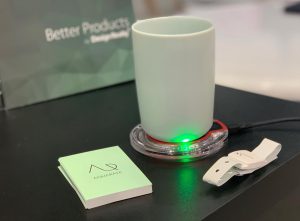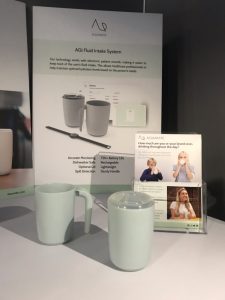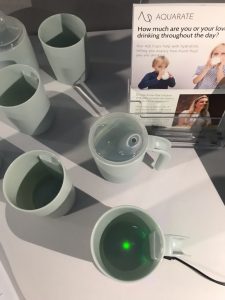Aquarate detail the importance of drinking water for children with communication difficulties.
Did you know that water is a major component of the human body, representing up to 60% of an adult’s weight (1) and up to 75% of a child’s body weight (2)? In children, this precious water is most commonly lost through urine and skin, but can also be lost from the lungs through breathing, and from faeces.
With this in mind, dehydration beyond as little as 1-2% of a child’s body weight can largely impact a child’s cognitive and physiological functions, for example memory and cardiovascular output respectively (3). Therefore, hydration is incredibly important for the health and well-being of children and helps to prevent against urinary tract infections and other hydration related illnesses.
However, what can we do as parents to make sure our children are drinking enough water throughout the day, especially if there are communication difficulties? Or how can we accurately know how much our child has had to drink? These are just 2 examples of questions Aquarate have received, which prompted us to attend the Kidz to Adultz North Event on the 14th November 2019. However before we can answer these questions, it may be helpful to know what Aquarate do.

Aquarate – our story
Aquarate was started in 2016 as part of our Founder, Rebecca Taylor’s final year Design Engineering project, through Liverpool John Moores University. Rebecca’s passion for innovation in healthcare blossomed after she came across a campaign called ‘Think Kidneys’, which was aimed at raising awareness around kidney disease.
At the heart of the campaign doctors were delivering training to nursing staff on how to complete manual fluid balance charts, a task that has proven to be time consuming and inaccurate.
Therefore, Rebecca set out to develop an accurate system to monitor fluids. The AQi System is suitable for both healthcare settings and home use.
How Aquarate helps
The AQi System is made up of a smart cup and mug, which accurately tracks how much an individual drinks throughout the day using sensors. The data is then sent to your mobile phone through an app.
Our smart cups come with an optional lid that can be used with a straw if desired and has a hole in the lid which allows liquid to flow out easily when tipped for drinking. But no need to fear if your child likes to spill, as we have built-in spill detection!
The cups are extremely durable and can be dropped and thrown about without damage. The battery life is 72+ hours and charges on a charging mat within 6 hours (pictured below). Our smart cups have also been safely designed to go into the dishwasher.

After attending the Kidz to Adultz North, Aquarate would like to thank all those who dropped by our stand to speak with us and provided feedback!
Some of the feedback we’ve received so far has indicated the varying effects dehydration has had on some of you, including increased tiredness, trips and falls, and kidney infections. We’ve also received feedback around designing a bottle in addition to the cup and mugs we’ve already created, which we are keen to develop to support people on the move!
To register your interest in the AQi System please get in touch through our website. Our website is also a great place to learn more about what we do and read through our blogs. For more regular product updates you can also follow us on social media – Facebook, Instagram, and Twitter.
Thank you for having us, we look forward to hearing from you!

References
(1) Watson, P.E., Watson, I.D., Batt, R.D. (1980). Total body water volumes.
(2) Altman, P.L. (1961). Blood and other body fluids. FASEB: Washington, DC.
(3) Hydration for Health Initiative (2019). Accessed on the 19/11/2019 via: https://d1fmvq9njdnlbk.cloudfront.net/home/monograph/BqGfic9jTRWg_xQHTiLgbA.pdf


Comments are closed